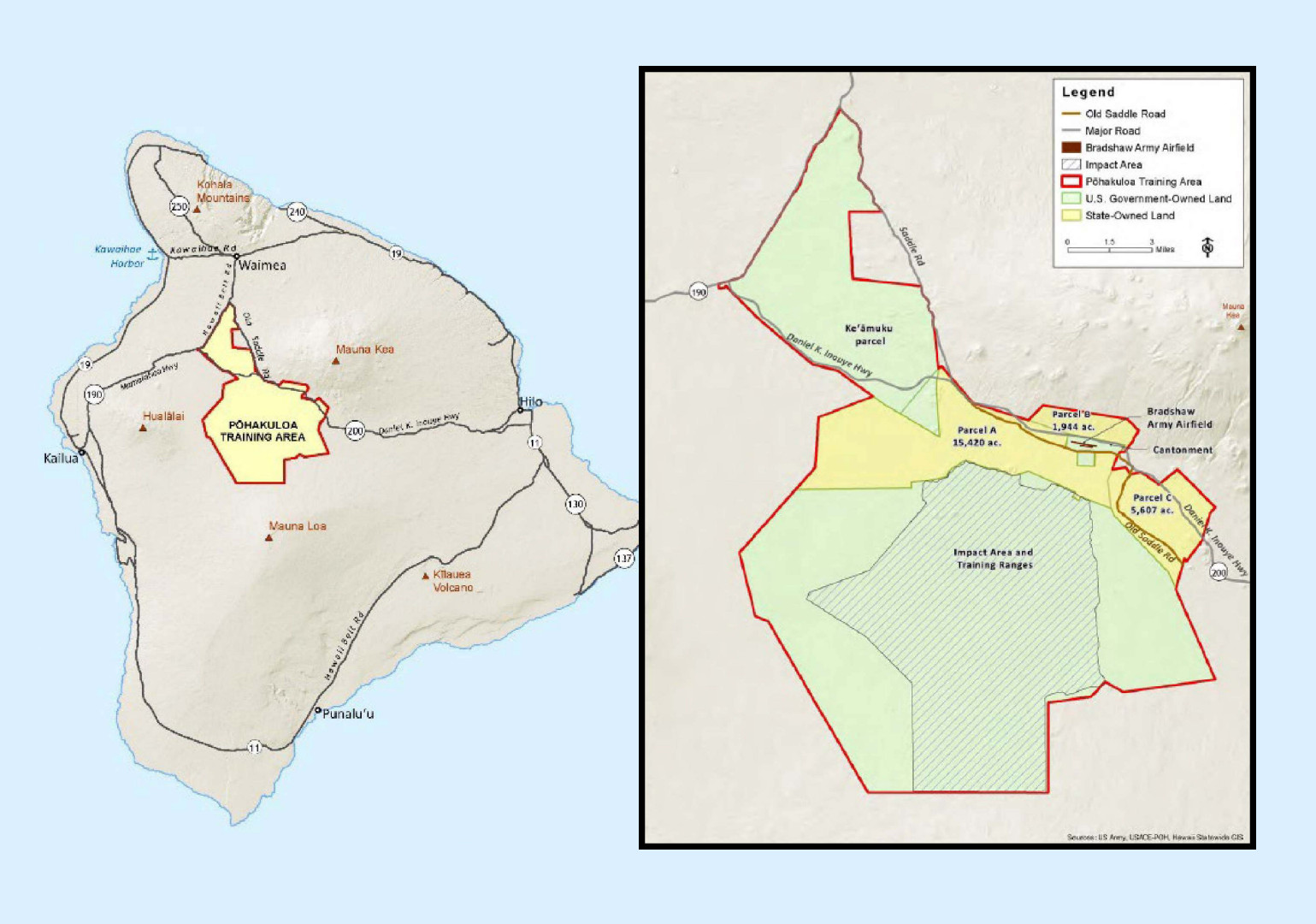(BIVN) – The Hawaiʻi Board of Land and Natural Resources on Friday was given an update on the status of the U.S. Army’s efforts to retain its leased State-lands at Pōhakuloa. During the public land board meeting, the Army also discussed similar retention efforts for Kahuku, Kawailoa-Poamoho, and Makua Training Lands leased on Oʻahu.
The Army currently leases approximately 22,971 acres from the State as part of its 132,000-acre Pōhakuloa Training Area on Hawaiʻi island. The 65-year lease is set to expire on August 16, 2029. The Army is seeking to retain up to approximately 22,570 acres in support of continued military training.
A Draft Environmental Impact Statement for the proposed land retention was published in April 2022. Here is Part 1 and Part 2 of that EIS.
The Army says it is currently working on revising the Draft EIS.
Meanwhile, a number of barriers to the Army’s retention effort have been identified.
One issue is “the ability for the Army training practices to conform with State Land Use Conservation District rules and regulations”, the DLNR says. The leased Pōhakuloa Training Area lands are located within the State Land Use Conservation District. The DLNR Office of Conservation and Coastal Lands has gone on record, stating that “military training is in direct conflict of the Conservation District designation to conserve, protect, and preserve the important natural and cultural resources of the State through appropriate management and use to promote their long-term sustainability and the public health, safety, and welfare.”
DLNR notes the Army could seek to rectify the land-use inconsistency through a Governor-approved administrative rule amendment, allowing the Army-leased training lands within the Conservation District to be placed within a “Special subzone.” It could also address the land-use inconsistency issue by petitioning the Land Use Commission through a District Boundary Amendment.
The DLNR notes that both the District Boundary Amendment and the administrative rule amendment “are time intensive and can lead to further delays in the State land leasing process thus potentially impacting the continuation of Army training until the issues can be resolved.”
The other issue is the viability of a possible fee acquisition of the land by the Army.
The State is not considering allowing a fee acquisition of the lands at this time “due to the negative impact it would have on the public trust corpus”, the DLNR says. Although the U.S. Government could seek to obtain the land in fee through condemnation proceedings and paying fair market value, the DLNR says the Army “has indicated that they are not currently pursuing this option.”
Fee simple ownership could also be accomplished through an exchange of lands between the U.S. Government and the State, the DLNR says.
From the DLNR’s land board submittal:
Due to the barriers the land retention efforts are facing, the Army has proposed the concept of a potential land exchange in which the Army would acquire fee simple title to the State-leased lands in exchange for lands currently owned by the U.S. Government conveyed to the State. As this is a new proposal, Staff felt that it warranted a discussion by the Board and the public for further consideration.
Friday’s discussion was a non-action item. Possible federal lands to be exchanged have not been identified.
“This was a very new concept,” said DLNR chair Dawn Chang during the meeting. “So, I’ve requested – as I’ve done with many other issues that come before the land board – let’s do an informational briefing. Because I need to know, sooner rather than later, the Board’s inclination. What are some of the board members comments? Also, the general public. If they come out here, and I’ve got 500 people protesting, saying ‘no way’, we need to know that. So that’s the purpose for this briefing.”
The land board heard testimony from both sides of the issue following the Army presentation on Friday.


by Big Island Video News8:01 am
on at
STORY SUMMARY
PŌHAKULOA, Hawaiʻi - The U.S. Army on Friday outlined the barriers to the retention of leased-lands at Pōhakuloa, and floated the idea of a land swap as an alternative.